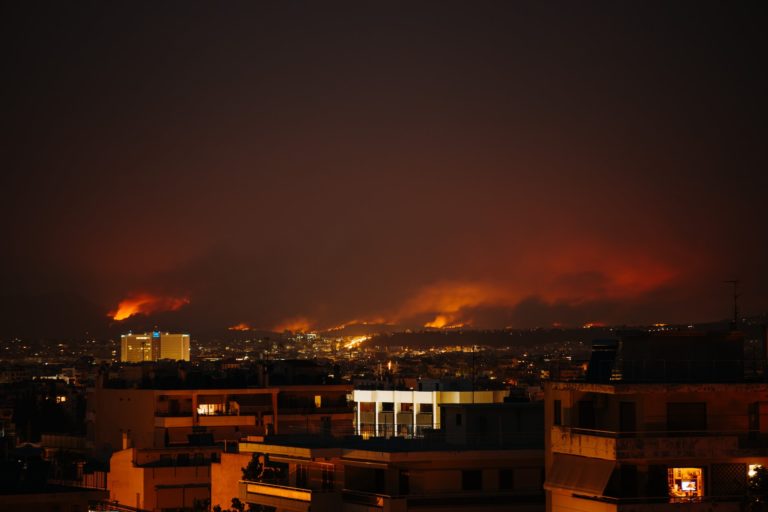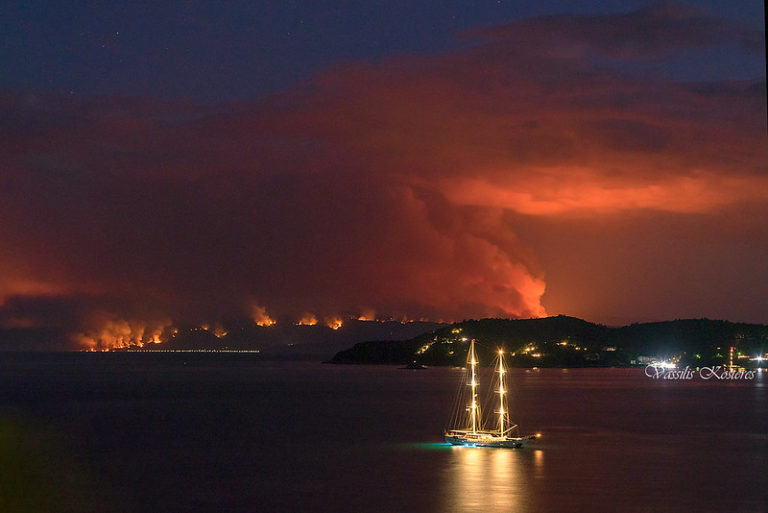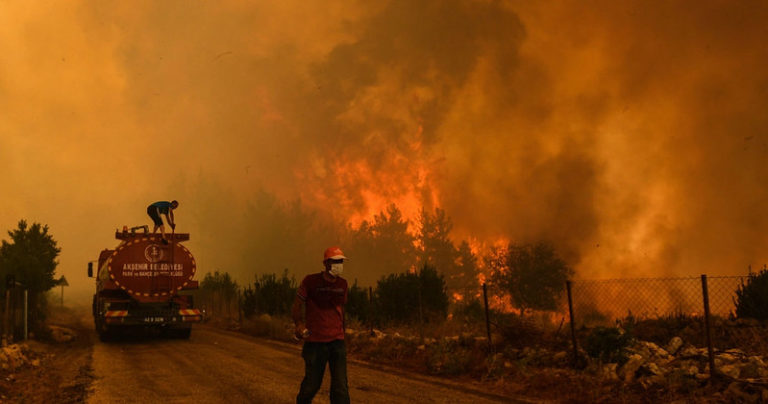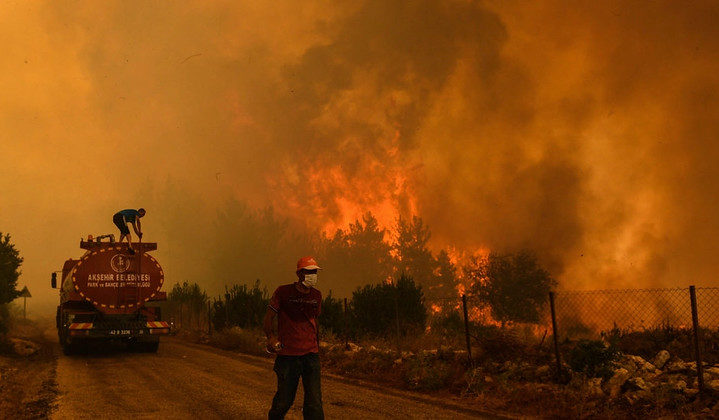A monitoring station on the island of Sicily recorded a temperature of 48.4 degrees Celcius, that if verified, will be the hottest day recorded in European history.

Water bombing a forest in Greece during the recent wildfires. Picture: Flickr Commons
The temperature, recorded Wednesday by the Sicilian Meteorological Information Service for Agriculture, still needs to be verified by the World Meteorological Organization. If confirmed, it would top the previous record of 48 degrees set in Athens in July 1977.
Spurred on by the record-breaking temperatures, with July going down as the hottest month ever recorded globally, Greek Scientists are looking into naming and ranking heatwaves as their effects are becoming difficult to ignore.
The recent heatwave responsible for the high temperatures has been attributed to a devil-branded anticyclone named ‘Lucifer’
Anticyclone ‘Lucifer’
Anticyclones are essentially high-pressure systems where warm air doesn’t rise but descends upon a particular area. This ‘traps’ the hot air, like putting a lid over a pan, often called a heat dome and causing high temperatures in a region.
In the Mediterranian basin, summers are usually dominated by what is called the Azores High Pressure that results in mild heat and consistently sunny weather. Recently however with global heating pushing up temperatures, this high pressure has given way to anticyclones from North Africa moving north causing intense heatwaves often followed by heavy rains and hailstorms.
Anticyclones are not unusual for this time of the year, although the high temperatures are caused by several factors are.
Professor Peter Scott who has studied heatwaves for more than 20 years recently told the New York Times that Lucifer is clearly attributed to climate change.
Raging wildfires
Sicily is not the only region to be adversely affected by Lucifer, with the heatwave being the culprit for wildfires and flooding across the region. According to the European Forest Fire Information System, the recent fires have already burned more than the annual average by 9 August.

A wildfire rages on the slopes outside Athens. Picture: Unsplash
Italy is still battling a wildfire near Catania, Sicily, amid its record temperature. These fires come not long after torrential rain caused flooding and mudslides near Lake Como a few weeks ago.
Greece is also in the process of fighting some of the worst fires to affect the country, where many villages on the Peloponnese Peninsula were evacuated last week.

Wildfires raging on the Greek island of Eboea. Source: Flickr Commons
Talking about the cause of the fires, Greek Prime Minister Kyriakos Mitsotakis said: ‘It is obvious that the climate crisis is affecting the whole planet.’
Residents in northern Turkey also commented that the recent fires are nothing like they’d ever seen before, where at one point there were more than 120 fires across the country, which killed eight people and injured dozens more. Meanwhile, flooding has ravaged the north of the country and triggered mudslides.

Firefighters battle a blaze in Southern Turkey. Credit: Felton Davis/ Flickr Commons
Algeria, a country perhaps spoken about less has lost the greatest amount of lives to wildfires, where at least 65 people have died in the recent blaze.
The fires have been ravaging forests and villages east of the capital, Algiers, in the Kabyle region, with the mountainous area covered in thick layers of smoke. Prime Minister Ayman Benabderrahmane has called on other countries for hope as the region has no water-dumping aircraft.
More to come
The recent IPCC report published on 9 August stated that 38 weather conditions that promote wildfires have become more probable in Southern Europe, with July the hottest month ever recorded.
This record may not stand for much longer, with the damning report with the effects of climate change predicted to rapidly increase in the future. These adverse predictions could affect Spain and Portugal later this week, with forecasts as high as 44C in parts of the Iberian Peninsula from Thursday.
ALSO READ
Too hot to handle: Why South Africa’s cities need more trees





















